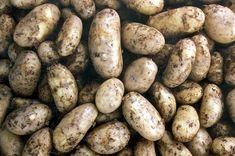
The upcoming Potatoes in Practice event at SCRI in Dundee is promising growers an update on the latest BPC-funded and other potato-related research.
The free event, which takes place on August 9, will see seminars on a wide range of subjects, including PCN control and Erwinia. There will also be tours of field trials that are looking at key industry issues, such as matching varieties to fields, agronomy for new varieties, herbicide and fertiliser demonstrations and the latest on common scab, black dot and rhizoctonia control.
Among the experts on hand to explain the latest research and products will be those from the BPC, SCRI, SAC and CSC.
“The event originated as a technical R&D event, but now attracts a far wider audience,” explained the BPC’s Rob Clayton. “There’s much more involvement from commercial companies, which means more opportunities to bring some really worthy research forward, and a more valuable event for all who come.”
The first seminar of the day looks at the threat from Erwinia chrysanthemi, which has been a major problem for potato growers in mainland Europe for decades but is now presenting itself more commonly in the UK. The talk looks at the pathogens and makes suggestions about what the industry can do to combat it.
A further seminar looks at the implications of the EU PCN directive revision for growers. 38 years after the original PCN Directive became one of the first EU control directives for a plant pathogen, the European Commission has drawn up a proposal for a new version that will better suit the current 27 European member states. This presentation outlines the proposal for the new directive and considers its potential impact on the control of PCN and on potato production.
Among the trials is a CSC Crop Protection demonstration on ammonium sulphate, which has been linked to the ability to reduce common and powdery scab. There will also be demonstrations on novel foliar-applied crop stimulants designed to boost yield and quality of Saxon and Maris Piper. Biological benefits of Radish and Chinese mustard also come under the microscope. Trials demonstrate the effects of PCN control growing a specific variety of Radish and the ability of Chinese Mustard to reduce levels of soil pest and disease.
Scottish Agricultural College will outline the latest work to control common scab without the sue of water. The trial on display forms part of a LINK project on common scab where development of the disease is monitored during tuber development, using DNA diagnostic techniques developed by Central Science Laboratory.
Elsewhere SCRI will demonstrate new varieties which exhibit resistance to blight and PCN.



